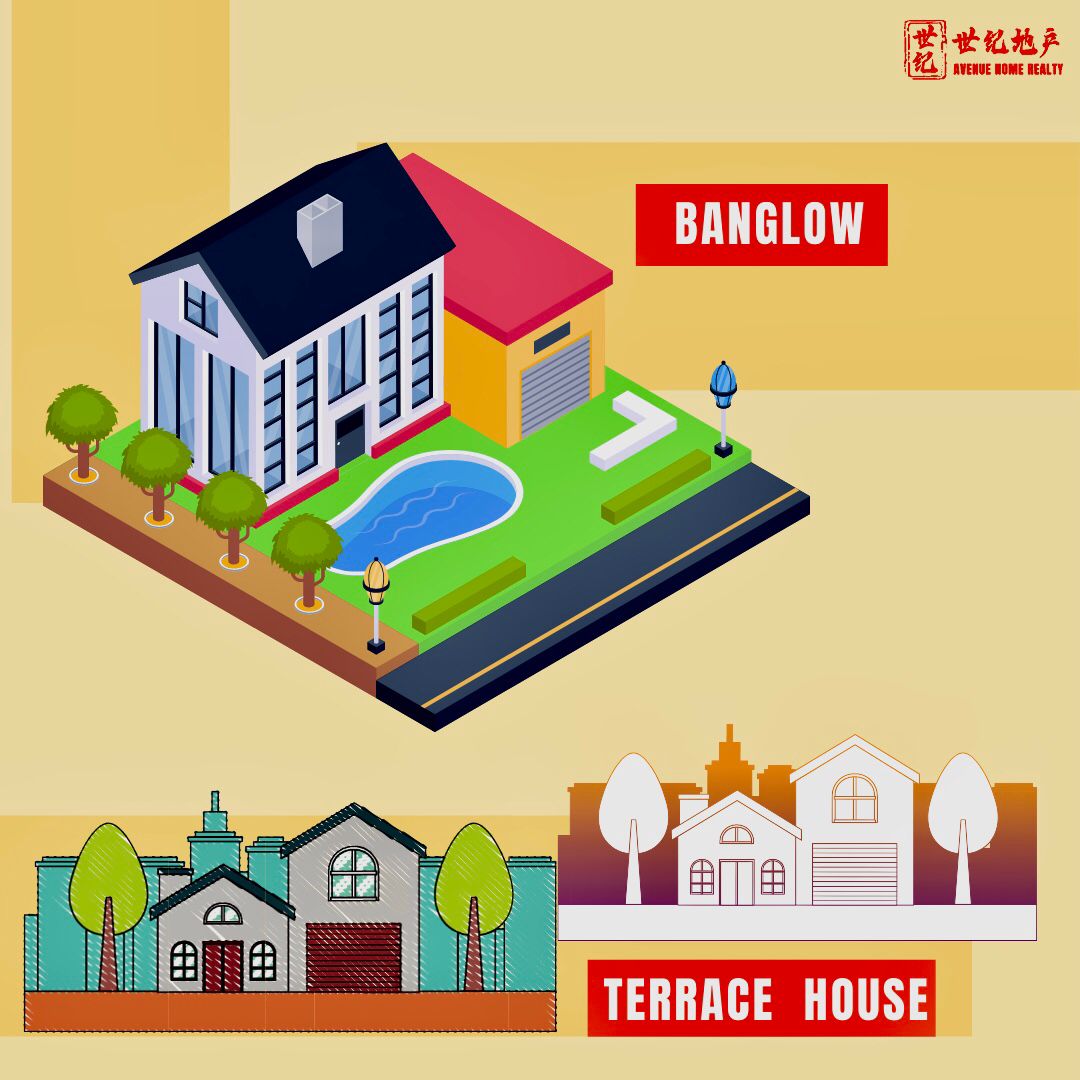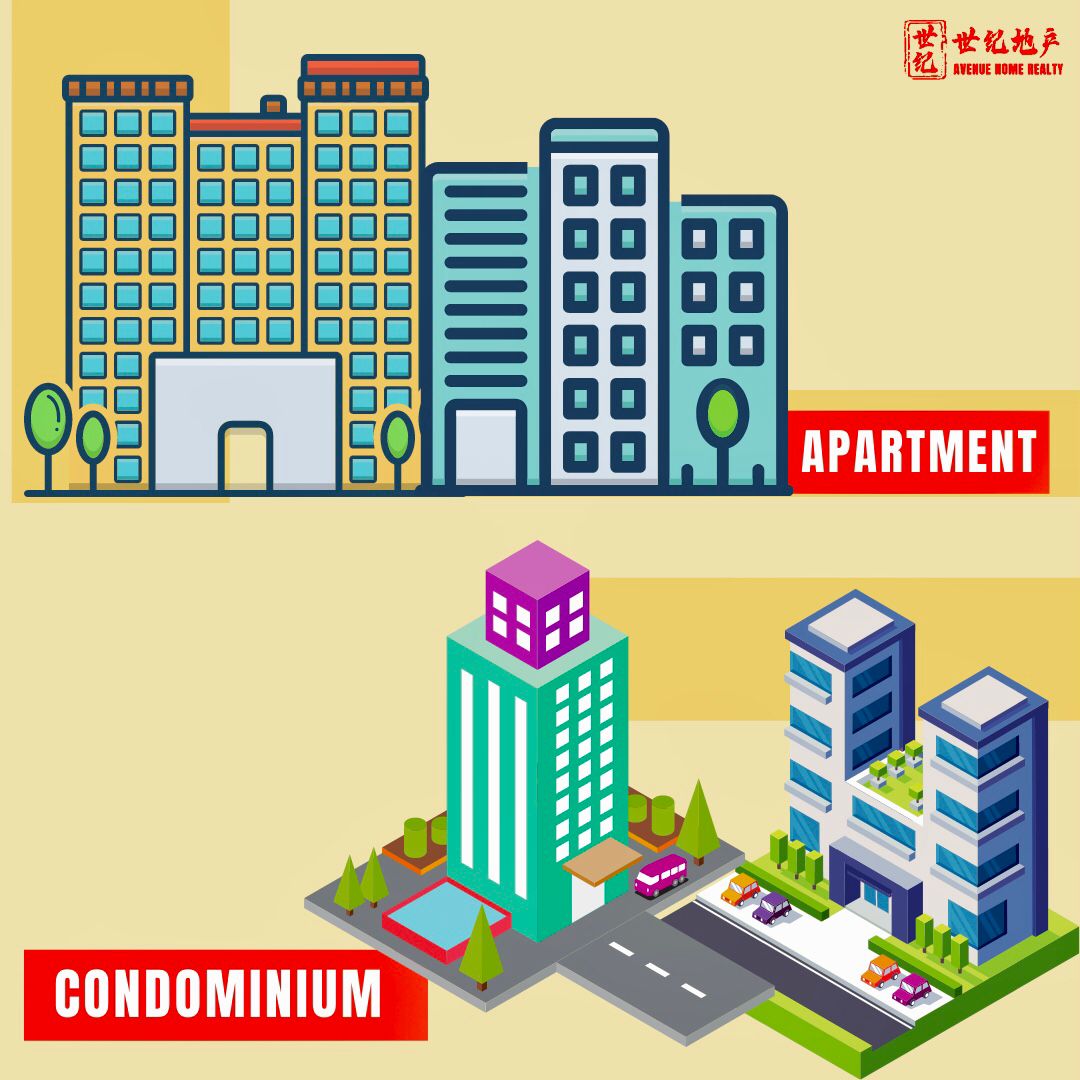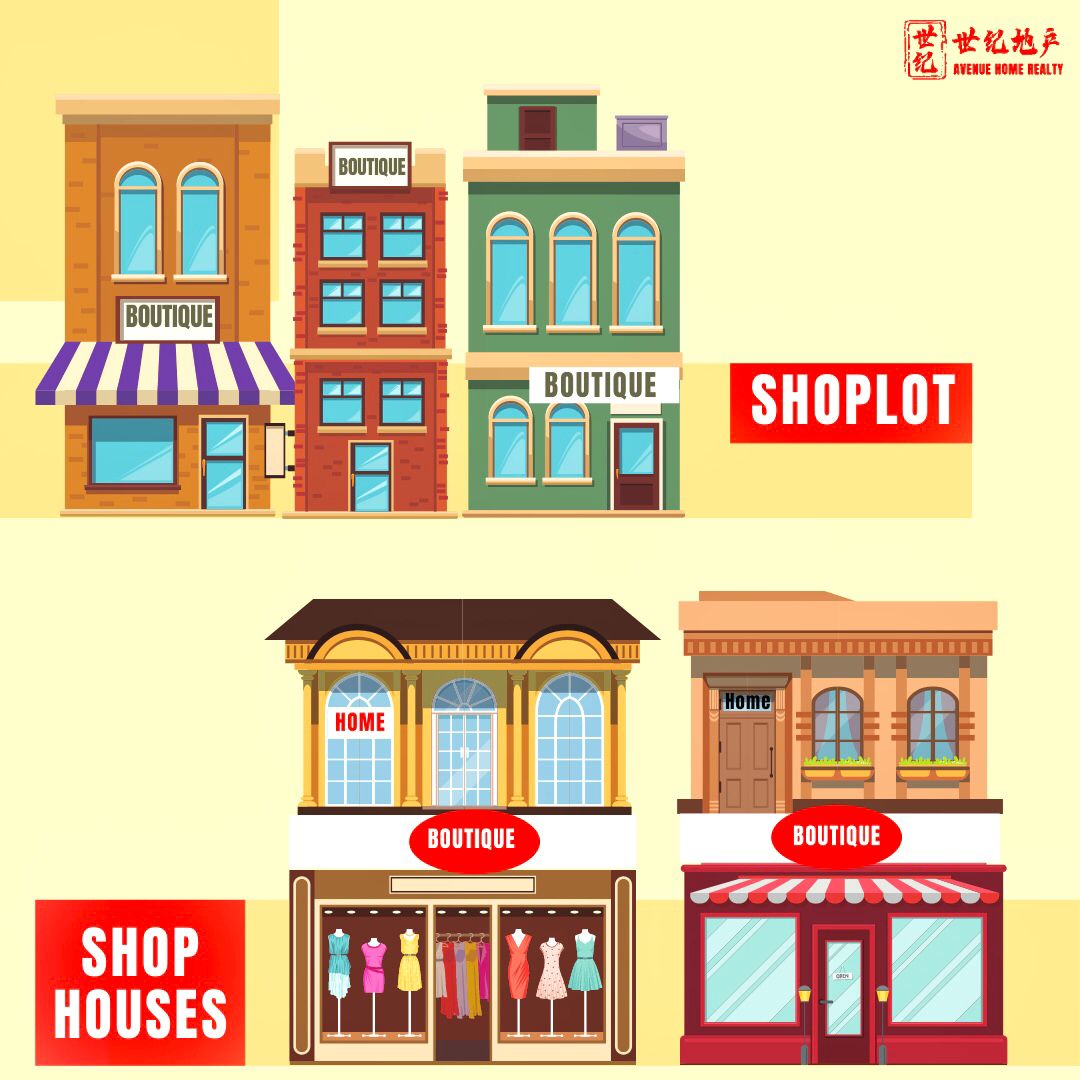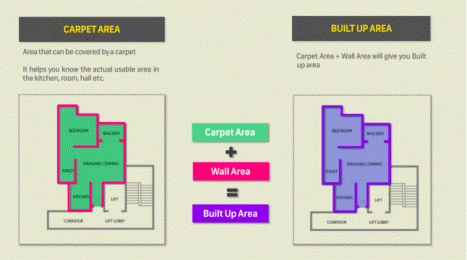Property Tips

Landed Property
Is referring to property with land, usually separated by walls or fences. This includes single family detached houses, terrace houses and semi-detached houses. Single family detached houses are usually free-standing residential buildings that offer greater privacy with no common walls. Terrace houses and semi-detached houses are usually several families living in the same structure. It is linked up however separated by fences or walls. Such category of property comes in variety of levels such as one-, two- or three-stories. Most people, especially families prefer residential houses to other types of homes for its maximized space.
Foreign buyers are able to purchase landed property in Malaysia. However, some local rules and regulations may apply, for instance, Selangor state requires that foreigners restrict purchases to landed properties which are gated and guarded.

Condominium & Apartment
Apartments are relatively self-contained housing unit in a building that is either high risers or low risers. A condominium comprises of recreational facilities and 24 hours security. Amenities usually include swimming pool, tennis court, gym, convenience store and etc. It consists of different variations of floor plans to cater to individual preferences. Studio apartment, on the other hand, is a self-contained, small apartment, which combines living room, bedroom and kitchenette into a single unit, barring a bathroom. Such units are best suited for single. Condominiums usually fetch higher prices and rentals due to the range of amenities, sizes and exterior/interior designs.

Serviced Apartment
A serviced apartment is a type of furnished apartment available for short or long term stay leisure and business travelers which provide amenities for daily use. It is almost comparable to hotels but you can either own or rent a service apartment. Serviced apartments can be less expensive than equivalent hotel rooms. Since the beginning of the boom in cheap international travel and the corresponding increase in the level of sophistication of international travelers, interest in serviced apartments has risen at the expense of the use of hotels for short stays. Service apartments are normally located in commercial districts.
Shop Lot / Shop House
Shop lots are located in a commercial area and carried a commercial title. Shop houses are homes that are located above shops. Even though the shops carry a commercial title, yet there are possibilities for the houses above it to carry a residential title. However, this will depend entirely on the developer, on whether they are able to apply for a Residential Title for the homes above the shops.

Sub-Sale
Existing properties that are available and are usually occupied by owners or renters, or vacant.
Bumi Lot
Bumi lot are open for sale or lease only to Bumiputera. Bumiputera is inclusive of Malays, Sabahan and Sarawakians, and also non-Malay Muslims. This property type exists in every new development where a certain percentage of the development has to be allocated to Bumiputera. Submit an application for consent to transfer. You'd need to provide convincing reasons as to why you're looking to do this to the Land Office. If your application has been rejected, you'd need to submit an appeal to the Land Office. Once your application is successful, you would be required to reimburse the developer with the discounted amount from initial purchase.
Malay Reserved
Often mistaken for Bumiputera Lots, Malay Reserved Land titles are actually slightly different. Where Bumi lots are open for sale to Malays, Sabahan and Sarawakians, and also non-Malay Muslims, Malay Reserved Land; otherwise known as "Tanah Rizab Melayu"; are only for Malay Muslims. Sabahan and Sarawakians, and also non-Malay Muslims are not eligible to purchase properties on Malay Reserved Land.
Leasehold
An owner of a leasehold property is not the owner of the land upon which the building is erected, but is a lessee of the land for a period varying from three years to 99 years (the maximum period of lease permitted by the National Land Code 1965). At the expiry of the term, the land reverts back to the government. The lesser the number of years left on the lease, the less valuable the land becomes.
Freehold
Opposite to leasehold is what is known as freehold, it basically means permanent and absolute tenure of land or property with freedom to dispose of it at will. There is no time limit for the owner and the freehold land lies with the title holder until he transfers it to someone else. The owner of the land owns the land, the building and anything that is on the land. After which the land-owner (which could be the state government or another enterprise) will take legal possession of it. Freehold is more preferable and fetches a higher price.
Forced Acquisition
The government still has the right to reacquire any land - whether it is freehold, leasehold or Malay reserved. The government is allowed to acquire the land to build government developments, be it a new highway, new public transportation system or other such public projects.
Valuation
Valuation establishes an opinion of value utilizing an objective approach based on facts related to the property, such as age, square footage, location, cost to replace, etc.
Built-up area
Built up area is the carpet area plus the thickness of outer walls and the balcony. Check out the diagram below from housing.com, which shows what the built up area constitutes.

Diagram was taken from housing.com
Market Value
Market Value is the estimated amount for which a property should exchange on the date of valuation between a willing buyer and a willing seller in an arm’s-length transaction after proper marketing wherein the parties had each acted knowledgeably, prudently and without compulsion. In simpler terms, it means the price an asset is able to fetch in the marketplace.
Fixtures and Fittings
Fixtures and fittings are the movable objects often defined under a Sale and Purchase Agreement, that may or may not be removed/included at the time of a property sale. They include elements such as the fridge and freezer, light fixtures, curtains etc.
Asking Price
Asking price is the term used to refer to the price at which a property is listed for sale. It is the defined price which the seller is providing to buyers to indicate the sum of money they wish to sell their house for.
This does not have to directly reflect the market value or appraisal price, as it is ultimately down to the decision of the owner on what price they wish to set for their property.
Earnest Deposit
Earnest deposit is something like a “booking fee”, given by the purchaser to the seller when he/she makes an offer to purchase the property. This is a payment to show that you are serious about buying the property. It is counted towards the down payment, and refundable if the offer is not accepted. The earnest deposit payment should be made payable to the real estate agency. Once the SPA is signed, this earnest deposit will be the real estate agent’s commission from the seller.
Letter of Intent to Purchase
A Letter of Intent to Purchase, also known as a booking form is a document outlining an agreement between two or more parties before the Sale and Purchase agreement is finalized. The letter provides an outline of the proposed terms of the transaction so the parties can negotiate before committing to a contract. It is needed to minimize misunderstanding and document progress towards a sale. Since this intent letter is not a binding contract, which means the property owner can still sell the property to someone else. It’s also a great way for a buyer to help secure financing.
Margin of Financing
The margin of financing depends on a few things, the value of the property, your income and your repayment capability. The amount of financing provided by a financial institution depends on the market value (for completed properties only) or purchase price of the house, whichever is lower. For example, if a property is priced at RM600,000 and the Margin of Financing is 90%, the amount of own money is RM60,000.
Interest Rate
The fee charged by a lender to a borrower for the use of borrowed money, usually expressed as an annual percentage of the principal; the rate is dependent upon the time value of money, the credit risk of the borrower, and the inflation rate.
Loan Agreement
Also known as a loan or credit facility agreement or facility letter. An agreement or letter in which a lender (usually a bank or other financial institution) sets out the terms and conditions (including the conditions precedent) on which it is prepared to make a loan facility available to a borrower.
Legal Fees
Legal fees in the property market is a term which refers to all mandatory payments to legal professionals for legal assistance in the purchase or sale of property. These are legislated by law, and are clearly defined costs as dictated by the Solicitor’s Remuneration Order.
Sales and Purchase Agreement (SPA)
SPA is actually a written contract representing the seller and buyer in a real estate transaction. It lists down all the terms and conditions of the purchase as well as the role of both parties. In the event there is a default from any one party, the termination and indemnity clause in the agreement will provide protection.
Master Title
A title, or title deed, indicates the owner of a property. In most cases, every property during the stages of development and construction will be under a single Master Title. Deed of Assignment (DOA). (if title is not issued) DOA is a legal document that transfers the interest of the owner of that interest to the person to whom it is assigned, the assignee. When ownership is transferred, the deed of assignment shows the new legal owner of the property. Sign DOA, When land still under master title.
Strata Title
Strata Title is the separate property deed for each unit in a sub-divided property (multi-storied building or a number of buildings on a piece of land that have common facilities administered by a management committee). These can include: apartments, condominiums, townhouses and etc.
Consent from Developer
Get the consent of the developer to the sale of the property to the new buyer and to undertake the registration of the property in the name of the new buyer.
Memorandum of Transfer (MOT)
The Memorandum of Transfer is a legal document which defines the transfer of ownership of a property. The signing of the MOT is the legal confirmation of transfer of ownership, and generally forms the final step of the transfer process.
Relevant Authorities
The SPA of such schemes may have restriction on the buyer selling the property. i.e., it could not be sold within a stipulated period or without the consent of the government. The title to the property may have restrictions. (The restrictions could be read from the title or search of the title) e.g., property cannot be transferred or charged without State consent.
Vendor
The seller of a property.
Redemption Sum
The outstanding amount owing to the Vendor’s bank (“Redemption Sum”). Where the Redemption Sum exceeds the Purchase Price or the Balance Sum, additional provisions are required to be made for payment of the amount in excess by the Vendor.
Encumbrance
A claim against a property by a party who is not the owner. Mortgages, easements and liens are examples of some encumbrances that can apply to real estate assets.
Discharge
Removing a debt by making full payment. A mortgage discharge is a document formally specifying that a mortgage debt have been paid.
Vacant Possession
It is usual for the contract for the sale of a property to contain a provision confirming the property is to be sold with vacant possession. Vacant possession is an obligation on the Seller to make the property available on completion in a state in which the Buyer can physically and legally occupy it.